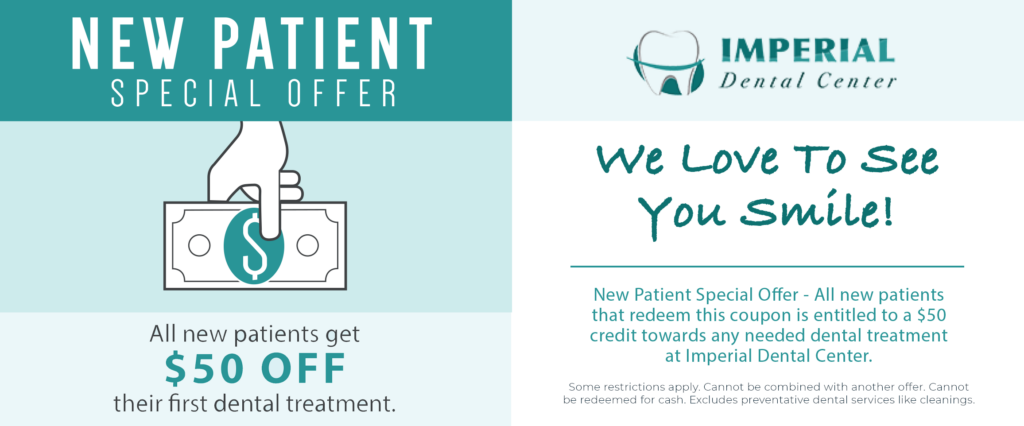
22 Mar 6 Reasons You May Have Bad Breath

No one wants bad breath. From onions and garlic to daily morning breath, most of us have experienced bad breath in one form or another. When the self-conscious smell of your breath is causing daily and regular discomfort, it may be a sign of a larger issue and should be addressed with your dentist.
Also known as halitosis, there are 80 million people who suffer from bad breath that is constant, and here are possible reasons why:
Gum Disease
The word ‘gingivitis’ may make you cringe but the fact is everyone has some form of gingivitis. From the foods we eat or drink to smoking and illness, bacteria invade our mouth. While typically mild, more severe forms of gingivitis can result in swollen, bleeding gums and deeper mouth issues called Periodontitis. Unchecked periodontitis can result in tooth loss and gum deterioration. Gingivitis and periodontitis are caused by the accumulation of plaque on teeth. Bacteria cause the formation of toxins, resulting in persistent infection and inflammation, often with bleeding gums. A study published in 2012 showed a direct relationship between periodontitis/gingivitis and bad breath. The halitosis is a result of a combination of decayed bacteria, blood, and food in patients with severe gum disease.
Poor Oral Hygiene
Poor oral hygiene leads to caries, gingivitis, and periodontitis so it is indirectly related to bad breath. Brushing your teeth for 2 minutes, 2 times per day is good oral hygiene. Brushing prevents harmful bacteria and plaque build-up, causes of bad breath and other issues including cavities. More is not better and brushing your teeth more than 3 times per day can cause enamel abrasion. Remember: 2 x 2 is good for you.
The tongue also plays a significant role in bad breath. Bacteria, food and other material can ‘hide” within our tongue and cause bad breath. Exercise good ‘tongue hygiene” by brushing or scraping your tongue regularly.
Dental Appliances (Dentures, Braces, Fillings)
Prosthetic teeth or corrective gear require extra care. With dentures, it is important to ensure proper fit. Ill-fitting dentures can cause food particles to hide and may irritate gums, causing bad breath. With braces and other corrective dentistry, it is important to brush thoroughly to remove hidden particles around wires or mouthpieces. Remember to change your toothbrush! An old toothbrush will have bristles that are frayed and worn out, becoming less effective at removing plaque and food particles. The ADA recommends changing your toothbrush or electric toothbrush head every 3-4 months. If you have recently recovered from illness, you should change your toothbrush right away even if it is new.
Medications and Health Issues
Many allergy sufferers turn to antihistamines to manage sneezing and watery eyes. While good for allergies, medications that dry-up can also dry out your mouth causing a change in the smell of your breath. Drinking water to stay hydrated is one effortless way to combat the issue. Other health issues including GERD (gastroesophageal reflux disease) can contribute to bad breath. With GERD, acid builds up in the stomach, and travels up into the esophagus, leaving a burning sensation in the throat that affects breath. Diabetes, especially when poorly controlled can lead to a specific fruit like odor or odor like acetone, also known as “diabetic breath”. Liver disease and certain cancers have also been linked to bad breath. Often, patients suffering from liver diseases have a musty smell of breath known as fetor hepaticus, indicating the liver disorders, often before they are diagnosed.
Dry Mouth and Morning Breath
During the day our mouth produces saliva which is used to break down food particles and to also keep our mouth hydrated. During our sleep, our bodies are in resting and replenishing mode and saliva production decreases. As a result, our mouths can dry out while we are sleeping, contributing to that stale morning smell. A light brushing will quickly remedy the issue. Dry mouth present in patients who have had cancer treatment, radiation therapy or suffer from some sort of salivary disease can also experience halitosis. Finally, certain medications can cause dry mouth resulting in bad breath. Talk to your dentist if you have dry mouth symptoms.
Other Causes
There are additional causes of bad breath from smoking, heavy coffee drinking, inflictions of the mouth, tonsils, and nose; from eating certain foods and vitamins to other types of diseases. Left untreated, some forms of bad breath can contribute to larger health issues. As with any health concern, contact your healthcare professional for accurate diagnosis and treatment. Start with your dentist as most of the time the cause of bad breath is connected to your mouth.
What to do?
When morning comes, wake up and freshen up with a toothbrush, toothpaste, floss and mouth rinse. For most of us, this simple step is enough to conquer bad breath. And remember, twice yearly dental cleaning and checkups are the best way to keep gum disease and decay at a minimum and to support a healthy mouth. Stay hydrated, watch your consumption of coffee, alcohol, and tobacco, and chew a sugar-free gum often. If your bad breath persists, contact your dentist. If your dentist suspects a more serious cause for your bad breath, he or she may refer you to a physician for further evaluation and treatment.
Dr. Nikola Angelov Imperial Dental Center
Nikola Angelov, DDS, MS, PhD
– Dr. Angelov is a guest contributor, currently Professor and Chair of Periodontics and Dental Hygiene at the University of Texas Health Science Center at Houston.


